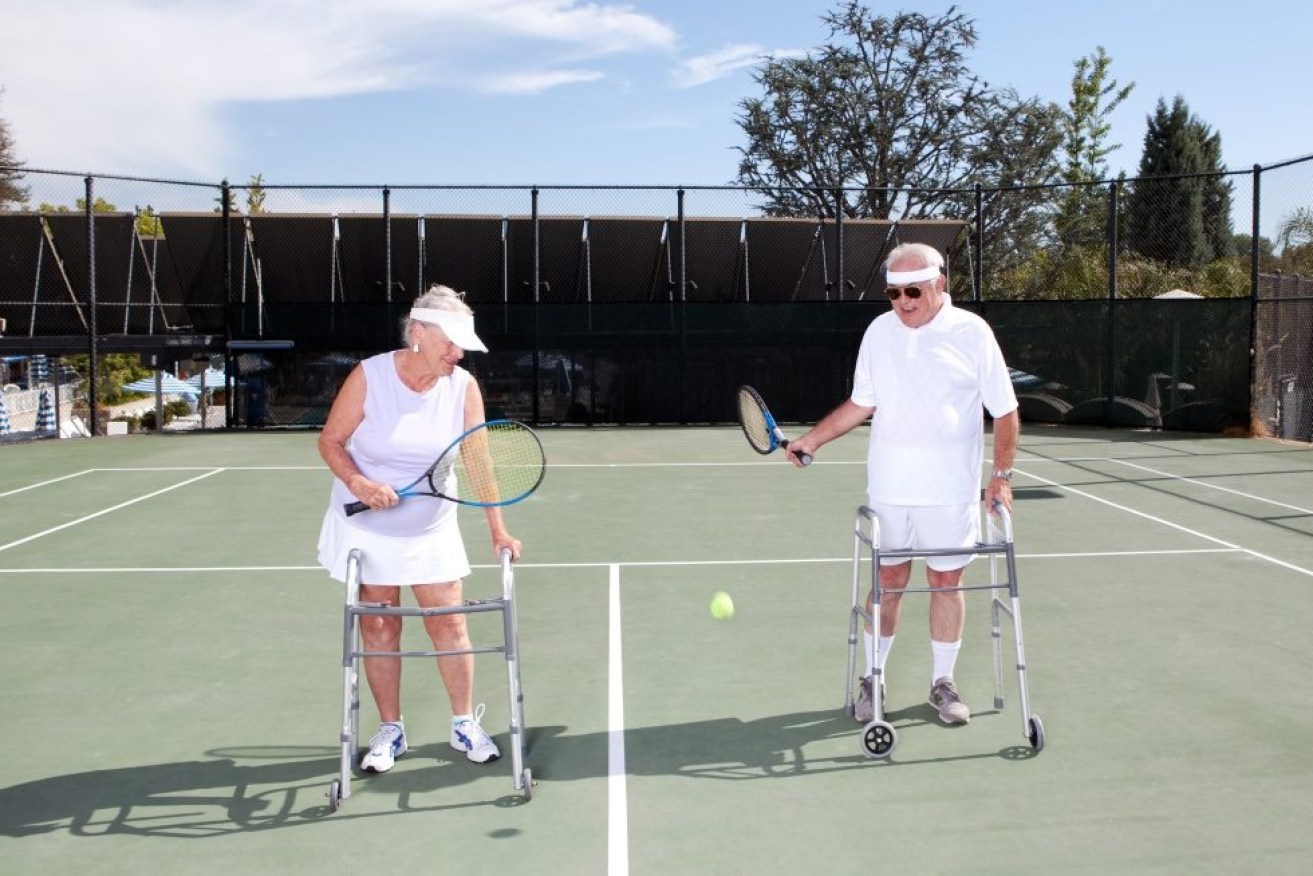Life-long recreational sport and exercise slows down aspects of ageing


Game, set and match: Life-long hits and giggles on the tennis court slows down the ageing of muscles. Photo: Getty
Research into the benefits of exercise on ageing tend to focus on competitive ‘master athletes’.
This is anybody over the age of 35 who regularly trains and competes well into old age.
Why 35? Because that’s when cardiovascular issues begin to affect your wellbeing. In other words, it’s the line in the sand between youthful and … not so youthful,
Now comes the first study “to find that life-long exercise at a recreational level could delay some detrimental effects of ageing”.
To get these results, you don’t need to specifically lift weights.
Your long-time weekly hit and giggle on the tennis court has done more for your health than you realised.
The study focused on people aged 68 and above.
It found those who were physically active throughout their life have healthier ageing muscle, with superior function and more resistance to fatigue “compared to inactive individuals, both young and old”.
Both young and old? Really?
That’s right. The researchers – in what they say is the first study to investigate muscle, stem cell and nerve activity in people – found “elderly life-long exercisers outperformed both the elderly and young sedentary adults”.
The researchers from University of Copenhagen found that elderly individuals who keep physically active throughout their adult life, “whether by taking part in resistance exercise, ball games, racquet sports, swimming, cycling, running and/or rowing had a greater number of muscle stem cells, otherwise known as satellite cells in their muscle”.
These cells are important “for muscle regeneration and long-term growth and protect against nerve decay”.
How was the discovery made?
The researchers recruited 46 male participants who were divided into three groups:
- Young sedentary (15)
- Elderly life-long exercisers (16), and
- Elderly sedentary (15).
All participants performed a heavy resistance exercise: Sitting in a mechanical chair performing a knee extension movement to evaluate muscle function.
The amount of force produced was measured.
Blood samples were taken, and muscle biopsies were analysed from both legs.
Lead author and PhD candidate Casper Soendenbroe, from Copenhagen’s Institute of Sports Medicine, said: “Using muscle tissue biopsies, we’ve found positive effects of exercise on the general ageing population. This has been missing from the literature as previous studies have mostly focused on master athletes, which is a minority group.”
He said the study was more representative of the general population aged 60 and above, as the average person is more likely to take part in a mixture of activities at a moderate level.
“That’s why we wanted to explore the relation between satellite cell content and muscle health in recreationally active individuals,” he said.
“We can now use this as a biomarker to further investigate the link between exercise, ageing and muscle health.”
The study was only carried out in males and the average age was 73.
As the effects of ageing on muscle health become more pronounced at 80-plus years, “follow-up studies are needed to see if the benefits of life-long exercise are maintained later in life”.
Further, investigation on recreational activity and muscle health need to be carried out in females.
Any good news for life-long slackers?
A 2018 study found that even very light workouts can increase the connectivity between parts of the brain responsible for memory formation and storage.
The Californian and Japanese researchers concluded that “people who include a little yoga or tai chi in their day may be more likely to remember where they put their keys”.
You might also remember to get off the couch, lock the door on your way out of the house and keep moving.
You don’t have to blow a gasket with effort to get some benefit, young or old.








